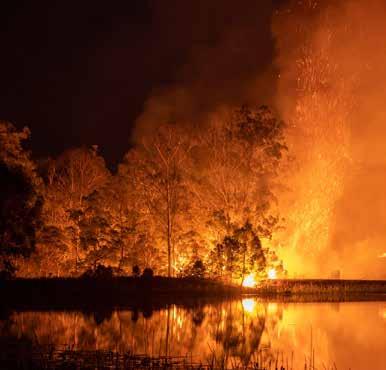Article | Illegal Colonies of Delhi
Regularising Delhi’s unauthorised settlements
A big task at hand Delhi’s unauthorised colonies is often seen as a hurdle to the implementation of an inclusive development plan in the city. However, with the Central Government’s decision to legalize Delhi’s unauthorised colonies, the long-time residents of these colonies can now own their property legally and avail benefits of government schemes and civic services. Will this move be successful in improving the overall condition of these unauthorised colonies?
Ashley Paul Reporter
T
he National Capital Territory of Delhi (Recognition of Property Rights of Residents in Unauthorised Colonies) Bill has sparked hopes in the hearts of residents of nearly 1,731 unauthorised colonies in Delhi. According to an estimate made by the Government of Delhi in 2013, nearly 30 per cent of Delhi’s population (according to Census 2011) or 40 lakh Delhiites live in unauthorised colonies. Since long, these residents have been promised by many leaders of the State that their demand to regularize their colony will be fulfilled. Moreover, being unauthorized, it was common to see narrow lanes and poorly built houses, open drains and broken pipelines in these colonies. With the passing of this Bill, government authorities responsible for providing civic services in the state will become liable to work on development of these colonies as they will now be recognized places of residence of the public. Along with this, the government will also work to provide standard documents of ownership to the residents of these
38 February 2020 | www.urbanupdate.in
colonies. Further, the government has appointed the Delhi Development Authority (DDA) as the agency responsible for implementation of the Bill. The DDA has announced that it will set up an online portal for the residents to apply for the procedure. DDA claimed that it will complete the entire process in a timely manner and will also set up help centres. Despite of all these provisions, the Bill still seems incomplete and lacking in a number of ways.
WHERE IS IT LACKING?
In order to know more about the Bill, Urban Update spoke with Dr Sanjay Kumar, co-Founder and co-Director of Aashray Adhikar Abhiyan and Aravind Unni, Thematic Lead, Urban Poverty Reduction, Indo-Global Social Service Society. The following points arose from the discussions:
Multi authoritarian model of working
Dr Sanjay Kumar, while explaining the provisions of the Bill, said that the passing of the Bill will prompt all municipal authorities in Delhi to carry out development work in the unauthorised colonies. He said, “Due to the multi-authoritarian model of working, the work carried out by these authorities might be delayed or even
disturbed due to poor coordination between different organisations. An example of this would be clear when organisations related to water and sanitation would spring into action. Both would have work involving the digging up of roads and lanes to lay water and sewage pipelines. In the absence of proper coordination, both the works being carried out together would result in the colony lanes being dug up for a longer duration, thereby causing inconvenience to the residents.” Further, Aravind Unni said that the Bill did not include a number of specific details regarding the implementation procedure. For example, building laws in Delhi are monitored by nearly 7 urban authorities. Thus, this causes confusion between different organisations as to which area falls under their jurisdiction. Not only does this affect the implementation of the regularisation bill but also delays other development related works across the city. According to both the experts, these discrepancies in the Bill can be addressed by adopting a simple approach. A separate independent body must be formed to oversee the entire process and manage all documentation. The body must consist of members from all major public organizations in the city like the DDA, the Delhi Jal Board (DJB), the Public Works Department (PWD) and all municipal corporations. This will help the body in considering different aspects while making any decision related to the unauthorised colonies, thereby making the regularisation and development of these colonies hassle-free and smooth for its residents.
Lack of better fire, disaster safety measures
Even though the government will carry out development work in the unauthorised colonies, the basic infrastructure of these colonies will remain the same. Narrow lanes, insufficient parking spaces, very few or no parks will continue to be some of the problems that inhabitants of













